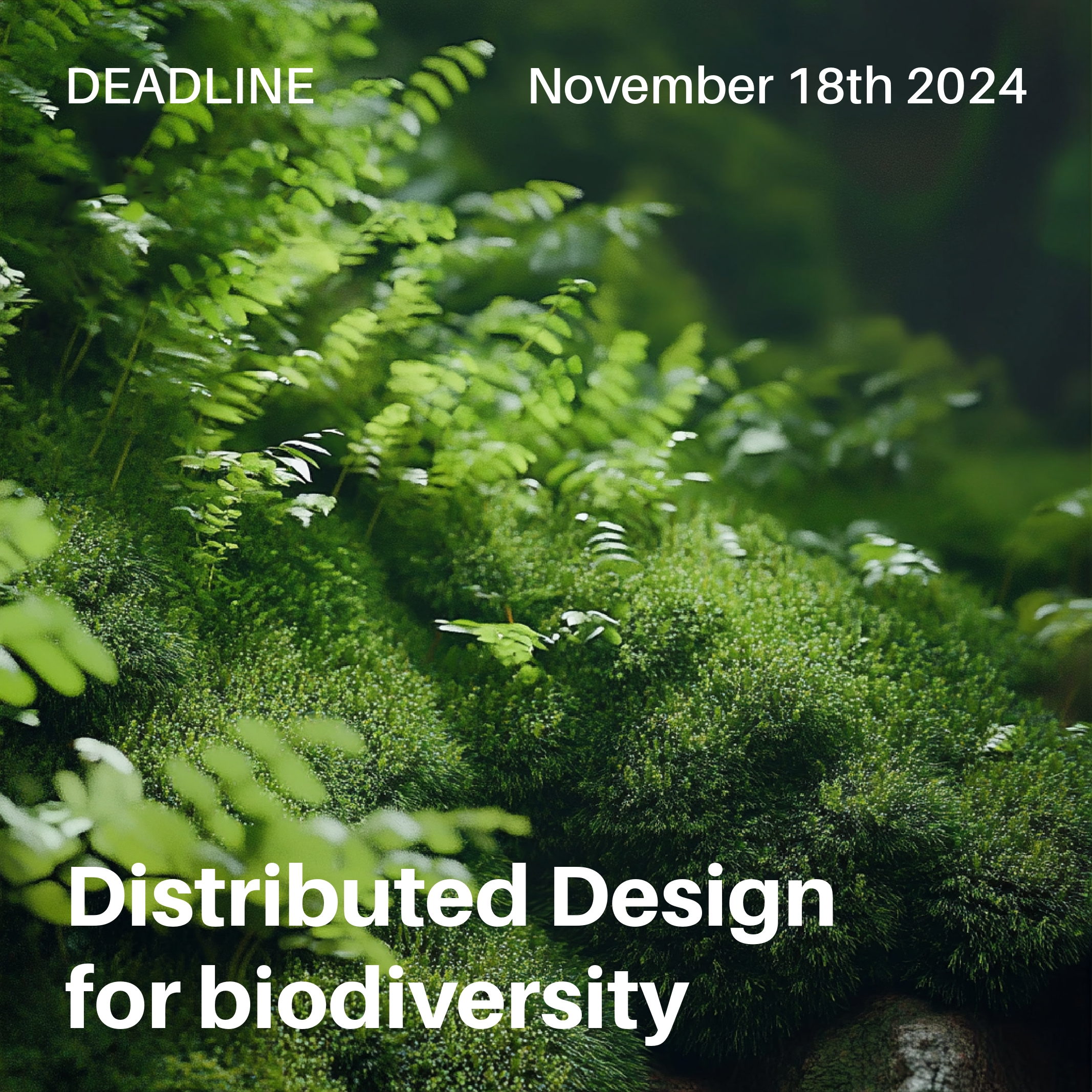
#distributed design #distributed biodiversity #circular agri-food systems #urban ecosystems
Distributed Design for the biodiversity of urban and agri-food (eco)systems
Biodiversity is crucial for the well-being of people and the environment, both in urban and agrifood ecosystems. Having a variety of species and natural spaces in urban areas improves air quality, helps manage water better and contributes to healthier food production, creating a natural balance that sustains daily life. Therefore, protecting and promoting biodiversity is essential for building a more sustainable and resilient future. A necessary tool for this is re-naturalisation, or rewilding, which means restoring natural and wild spaces to allow biodiversity to flourish. In cities, rewilding means looking at initiatives such as urban forests, green corridors, nature parks with local species, green roofs, and vertical gardens. In agriculture, rewilding may concern the conversion of farmland to natural areas and the creation of small forests and wetlands.
Distributed Design for Biodiversity is an experimental project created to address these challenges. Created by Polifactory, the makerspace of the Politecnico di Milano, and funded by the Creative Europe programme, it explores how distributed design can help to learn about, protect and promote biodiversity in urban and agricultural contexts. In practice, the aim is to develop open-source, accessible and replicable solutions that anyone can use to monitor and support biodiversity in parks, pastures, vineyards and other agrosystems. The project aims to develop digital tools to enable individuals and local communities to collect data, better understand the biodiversity present on their territory and take action to protect and increase it. Distributed Design for Biodiversity is an initiative combining design and digital technologies, offering new ways to enhance and protect biodiversity in cities and the countryside.
18th October, Polifactory launched the Open Call for Ideas, inviting young designers of the School of Design, Politecnico di Milano, to submit concepts related to open-source solutions that explore the role of Distributed Design for the biodiversity of urban and agrifood systems
Two ideas related to local food ecosystems presented by two different teams will be selected and supported by Polifactory to create prototypes demonstrating the possibility ofmaterialisingg solutions with real potential in terms of production and distribution.
At the end of November 2024, we will select two new ideas that will become in February 2025 the new open-source solutions to stimulate the distributed biodiversity for urban and agrifood ecosystems. Stay tuned! 🙂